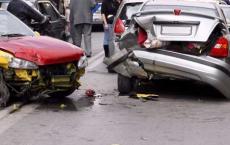
Car insurance costs are going to be investigated by the Competition Commission after the Office of Fair Trading (OFT) announced a provisional decision to refer the industry.
The OFT has described the car insurance market as ‘dysfunctional’. When there is a car accident the insurer for the person who is at fault is responsible for car hire and repair charges, but they have no control over the costs.
According to the OFT, some insurers of the not-at-fault driver and others, such as brokers, credit hire organisations and repairers, can take advantage of this lack of control as an opportunity to generate revenue through rebates and referral fees. This then inflates the costs for the insurer of the at-fault driver.
“This is an inefficient way for the sector to operate, raising the total costs for providing motor insurance, which drivers end up paying,” says the OFT.
The OFT has referred the industry to the Competition Commission as this inflation of costs “prevent, restrict or distort competition.”“The market would work better if insurers competed primarily on the quality and value of the service each provides to insured drivers, rather than focusing on gaining the competitive edge through raising rival insurers’ costs and increasing their own revenues,” states the OFT.
After an accident many brokers, repairers and insurers of not-at-fault drivers refer these drivers to credit hire organisations that charge a high daily rate in return for a referral fee of between £250 and £400 a time. These drivers also appear to receive a replacement car for longer than necessary, according to the OFT investigation. All this inflates the cost by an average of £550 per incident.
“Competition in this market does not appear to work well for drivers,” says John Fingleton, chief executive of the OFT. “We believe the focus that insurers have on gaining the competitive edge through raising their rivals’ costs means that drivers pay more than they need to for their motor insurance policies.”
“For too long insurers and people paying premiums have faced inflated rates for credit hire cars and excessive hire periods, which have led to higher premiums,” says Nick Starling of the Association of British Insurers. “There is no control of costs which have run away, and some people have taken advantage of the system.”
The OFT’s decision to refer the car insurance industry to the Competition Commission is only a provisional one. It will announce its final decision in October 2012. But a clear sign has been sent to the industry that it needs to clean up its act.
An increase in the general level of prices that persists over a period of time. The inflation rate is a measure of the average change over a period, usually 12 months. If inflation is up 4%, this means the price of products and services is 4% higher than a year earlier, requiring we spend and extra 4% to buy the same things we bought 12 months ago and that any savings and investments must generate 4% (after any taxes) to keep pace with inflation. Since 2003, the Bank of England has used the consumer prices index (CPI) as its official measure of inflation (see also retail prices index).
Established in 1985, the ABI is the trade body for UK insurance companies. It has more than 400 member companies that provide around 90% of domestic insurance services sold in the UK. The ABI speaks out on issues of common interest and acts as an advocate for high standards of customer service in the insurance industry. The ABI is funded by the subscriptions of member companies.